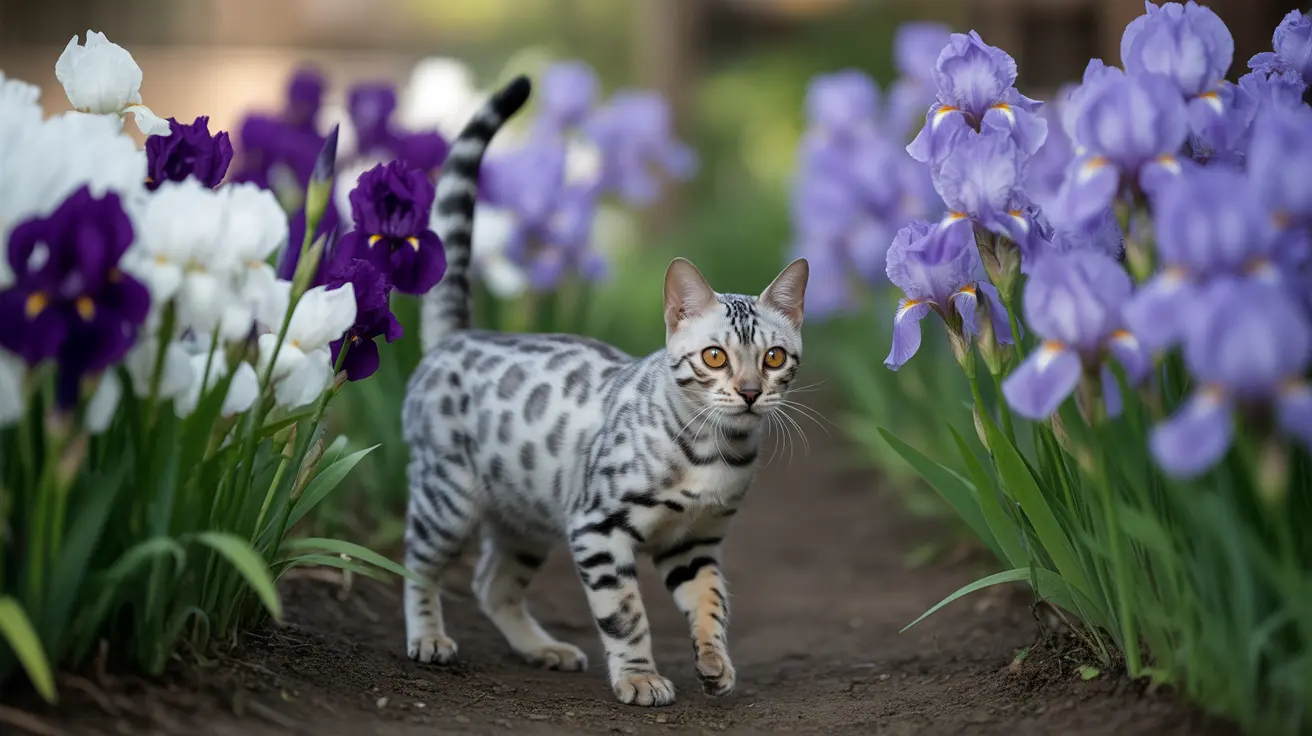As a cat owner, knowing which plants pose risks to your feline friend is crucial for their safety. Iris plants, with their striking blooms and widespread presence in gardens and floral arrangements, are indeed toxic to cats. This comprehensive guide will help you understand the risks, recognize symptoms, and know exactly what to do if your cat encounters these beautiful but potentially harmful flowers.
Understanding iris toxicity in cats is essential because these plants contain dangerous compounds that can cause significant discomfort and illness in our feline companions. Let's explore everything you need to know to keep your cat safe.
Understanding Iris Plant Toxicity
Iris plants contain toxic compounds called pentacyclic terpenoids, including zeorin, missourin, and missouriensin. While every part of the iris plant is toxic, the rhizomes and bulbs contain the highest concentration of these harmful substances. This makes digging cats particularly vulnerable to severe exposure.
All species of iris, including popular varieties like bearded iris and yellow flag iris, pose similar risks to cats. Whether grown in gardens or displayed in indoor arrangements, these plants should be considered potentially dangerous to your feline companion.
Recognizing Symptoms of Iris Poisoning
If your cat has been exposed to or ingested any part of an iris plant, watch for these common symptoms:
- Gastrointestinal upset (vomiting and diarrhea)
- Excessive drooling or salivation
- Oral irritation and ulcers
- Skin irritation, especially around the mouth
- Lethargy or weakness
- Loss of appetite
Symptoms typically develop within a few hours of exposure and may persist for up to 48 hours. While iris poisoning is rarely fatal, it can cause significant discomfort for your cat.
Treatment and Emergency Response
If you suspect your cat has ingested iris plants, immediate action is crucial:
- Remove any visible plant material from your cat's mouth
- Contact your veterinarian or pet poison control immediately
- Collect a sample of the plant for identification
- Monitor your cat's symptoms closely
Veterinary treatment typically includes supportive care such as fluid therapy, anti-nausea medication, and activated charcoal to bind toxins. Most cats recover fully with prompt medical attention.
Prevention Strategies
The best way to protect your cat from iris poisoning is through prevention:
- Remove iris plants from your garden or create barriers to prevent access
- Keep cut flowers containing iris out of reach
- Consider cat-safe alternatives for garden plantings
- Supervise outdoor time, especially in areas where iris might grow
- Educate family members about the risks of toxic plants
Frequently Asked Questions
Are all parts of the iris plant toxic to cats or just specific parts like the bulb or rhizome?
All parts of the iris plant are toxic to cats, but the bulbs and rhizomes contain the highest concentration of harmful compounds. Leaves, flowers, and stems can also cause illness if ingested.
What symptoms should I watch for if my cat has ingested iris plants?
Watch for vomiting, diarrhea, excessive drooling, oral irritation, skin inflammation, lethargy, and loss of appetite. These symptoms typically appear within hours of exposure.
How dangerous is iris poisoning to cats and can it be fatal?
Iris poisoning is typically classified as mild to moderate in severity. While it can cause significant discomfort, it is rarely fatal when treated promptly. However, severe cases can occur with large ingestions.
What immediate steps should I take and how is iris poisoning treated in cats?
Remove any plant material from your cat's mouth, contact your veterinarian immediately, and bring a sample of the plant if possible. Treatment usually involves supportive care, including fluid therapy and medication to control symptoms.
How can I prevent my cat from being poisoned by irises in my garden or home?
Remove iris plants from areas your cat can access, create barriers around garden beds containing iris, keep cut flowers out of reach, and consider planting cat-safe alternatives. Always supervise your cat's outdoor activities.
Keeping your cat safe from toxic plants like iris requires vigilance and awareness. By understanding the risks and taking appropriate precautions, you can ensure your feline friend stays healthy while still maintaining a beautiful garden or home environment.






